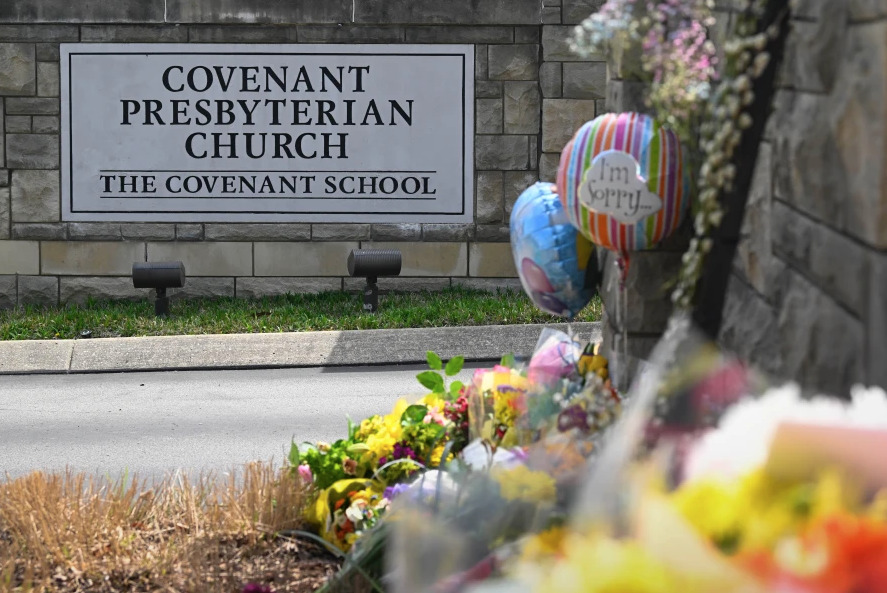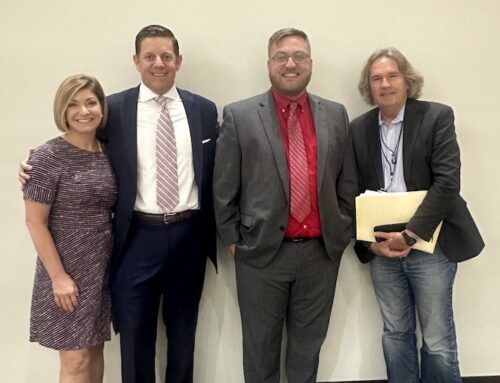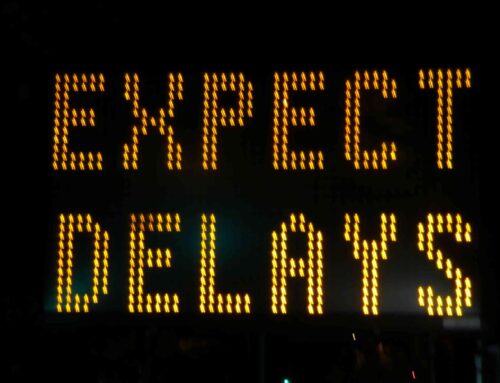Sen. Gardenhire, Tennessean file public records lawsuits; Covenant parents seek to intervene
 The fight over the release of the Covenant School shooter’s manifesto and other writings escalated Wednesday with state Sen. Todd Gardenhire, R-Chattanooga, and The Tennessean filing a public records lawsuit against Metro Nashville, and unnamed Covenant School parents filing motions to intervene in the current cases.
The fight over the release of the Covenant School shooter’s manifesto and other writings escalated Wednesday with state Sen. Todd Gardenhire, R-Chattanooga, and The Tennessean filing a public records lawsuit against Metro Nashville, and unnamed Covenant School parents filing motions to intervene in the current cases.
Also, Assistant Police Chief Mike Hagar and police Lt. Brent Gibson filed declarations that police are still trying to determine if the shooter had any assistance planning the shooting or purchasing the weapons, with Gibson stating that it will take about 12 months to finish the investigation.
“While we believe at this time that the assailant acted alone in this case, we do not know for sure. And we need to investigate the matter thoroughly, as we do in all homicides, to rule out any co-conspirators or additional crimes related to this matter,” Gibson said in his declarations.
The filings of the police and of the unnamed Covenant parents were made in the consolidated cases brought by a citizen working with the National Police Association and by the Tennessee Firearms Association. Two other cases, including the one filed Wednesday and one by Michael Patrick Leahy and Star News Digital Media, may yet be consolidated by Chancellor I’Ashea L. Myles with the others. (Update: Chancellor Anne Martin was assigned to The Tennessean case, but it was transferred to Myles who has the other three cases.)
A hearing on all the motions was rescheduled from today to 1 p.m. Monday.
Covenant parents want none of shooter’s writings released, motion says
The motion by the unnamed Covenant parents to intervene in the case asks that none of the shooter’s writings be released, or, secondarily, a more substantially redacted version than what police have already submitted to the court under seal for review. They say releasing even the proposed redacted version of the writings is “too much.”
The brief, submitted by Eric G. Osborne and other attorneys with Sherrard Roe Voigt & Harbison, states that it is filed on behalf of the parents of the three families whose children were killed, the surviving children, and the “overwhelming percentage of parents of those surviving children who have opted to join this intervention.”
“(T)he Parents see no good that can come from the release and wish to contend that the writings — which they believe are the dangerous and harmful writings of a mentally-damaged person — should not be released at all. Furthermore, at a minimum, the Parents wish to support the Covenant School in its effort to intervene to keep records and information related to the School, its people, and its security out of the public eye.” (The Covenant School and the Covenant Presbyterian Church filed motions to intervene earlier this week to, in part, protect the privacy interests of its employees.)
The parents say that they intend to file a lawsuit against Metro Nashville to prevent the city from releasing the writings and will argue that the records are not public records “as contemplated by the Tennessee Open Records Act, that the school safety exception is broad enough to encompass all of the writings and keep them from being released, that an implicit exception to the Open Records Act applies to the writings, and that the public policy behind the Open Records Act does not apply here, especially given the very real danger (and sincere fear of the Parents) of copycat attacks and the trauma and harm that public release of the documents will cause to the Parents, their children, and related family members for years to come.”
The filing also requests to discuss with the Court “whether, how and when it will be best for Sherrard Roe Voigt & Harbison to identify its clients,” stating that more than three-quarters of families at Covenant School have “affirmatively expressed their desire to join this intervention.”
The brief asks to allow the parents to file “Victim Impact Statements” with the court.
New lawsuit: Writings could inform ‘broader public debate’ about mass shootings
A different position on the public value of the writings was taken in the lawsuit filed Wednesday by The Tennessean, its reporter Rachel Wegner, and Gardenhire, who is chairman of the Senate Judiciary Committee but is pursuing the case in his individual capacity as a citizen. Robb Harvey with Holland & Knight (formerly Waller Law) represents the newspaper and the senator.
“The murders on the campus of The Covenant School have resulted in significant public interest. These killings are part of a broader public debate about shootings at locations including schools, movie theaters, nightclubs, and shopping malls.”
“In this particular instance, debate has arisen regarding Hale’s motivations, goals, planning, and acquisition of firearms while under mental health treatment. For example, did Hale attack a Christian school because of its religious affiliation? Or because of the conservative views of the denomination of which The Covenant’s School’s sponsoring church is a participating congregation? Or because Hale hated the school that Hale once attended? Or because Hale had a grudge against some employee or administrator at the school? What do Hale’s autopsy/toxicology tests show, and are they connected to the shootings? What do Hale’s records show that might be of assistance to the Tennessee special legislative session scheduled to take place in August 2023? What do these records reveal which may help to avoid school shootings in the future? These and other questions have caused debate and intense public interest.”
The lawsuit notes that the special session called by Gov. Bill Lee is set to begin on Aug. 21 and its purpose is to consider new legislation regarding public safety in light of the Covenant shooting.
Lawsuit: Records will contribute to discussion in special session
“The records requested by the Plaintiffs/Petitioners will contribute to the discussion and debate which is anticipated at the Tennessee General Assembly.”

Robb Harvey with Holland & Knight is representing The Tennessean and State Sen. Todd Gardenhire in getting access to the Covenant shooter’s writings.
Even though 66 members of the Tennessee House of Representatives have asked Metro Police Chief John Drake to release the records, he has so far declined to do so, the lawsuit observed.
“The result of the positions taken by the Metropolitan Government and the proposed Intervenors could be the disruption of the Special Session of the Tennessee General Assembly and the hoped-for gun legislation.
“Plaintiffs/Petitioners seek to bring to light additional facts regarding this incident, societal and mental health issues, and issues regarding firearms more broadly, which have not yet been revealed through other means.”
The records requested by The Tennessean but denied are all police reports with Audrey E. Hale (the shooter) named; all calls for service to Covenant School and to Hale’s home, limited to the past five years; the incident reports for the initial and second police responses to the school on March 27; all documents in Audrey Hale’s possession immediately prior to her death, including the car and home, including journals and hand-drawn maps; and autopsy and toxicology reports on Hale.
Gardenhire requested copies of “the manifesto and journals left by Audrey Hale prior to the shooting,” stating in his public records request that he sought the documents for “research” in “writing new laws regarding school safety.”
Police have denied requests based on ‘ongoing investigation’
Police have denied all requests citing Rule 16 of the Criminal Court Rules of Procedure, which permits law enforcement to withhold information in their investigative files during an ongoing investigation.
However, the Tennessee Supreme Court said in a 1986 case, Memphis Publishing Company v. Holt, that Rule 16 is not applicable when there is no pending or contemplated criminal action.
The lawsuit claims, like the three others filed, that no pending criminal investigation is ongoing since the shooter is dead and police say they believe she acted alone.
The lawsuit also says Metro Nashville “invited intervention by third parties,” specifically the school, the Covenant Presbyterian Church and parents or relatives of the murder victims.
“The motions to intervene are, in essence, ‘reverse’ public records requests seeking to prohibit or enjoin the disclosure of public records. Intervention by these third parties is not provided for under the TPRA (Tennessee Public Records Act).”
The lawsuit also says the intervention requests impede rights in the Tennessee and U.S. Constitution to free speech, including newsgathering and publication, and the right to petition government in violation of the Tennessee Public Participation Act.





